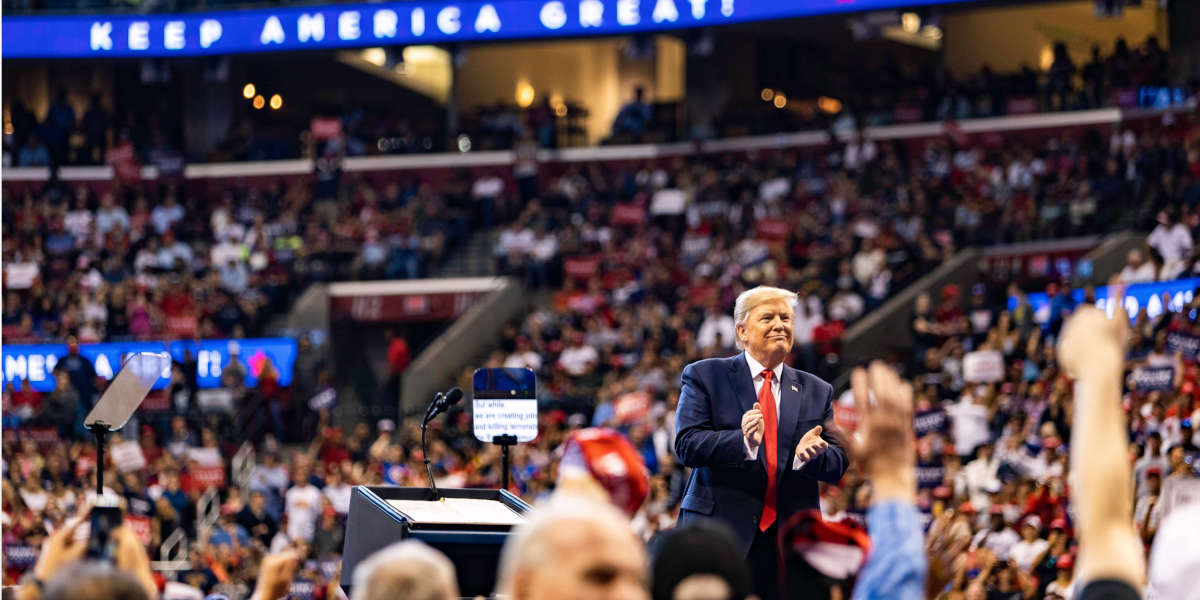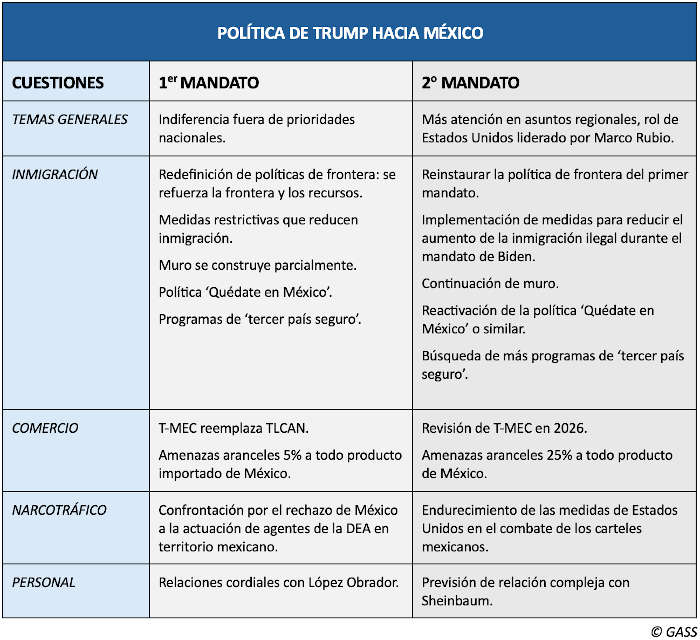In the picture
Trump during a campaign rally [official website].
In addition to dealing with the priorities set by the international diary - the wars in Ukraine and the Middle East - Donald Trump is supposed to pursue a foreign policy in line with his first term in office on his return to the White House. There are, however, some modulations. The selection of framework Rubio as Secretary of State, who as a senator has stood out for his active role in relation to Latin America, invites us to think of a presidency relatively more attentive to the continent itself. There will probably be a greater emphasis, if possible, on immigration and drug trafficking, making Mexico an important focus of this interaction, in which there will also be room for trade issues.
In its relationship with Latin America, Donald Trump's second presidency could move from relative indifference to a more active and decisive posture. Specifically, the United States will focus a significant part of its efforts on Mexico, where policies will prioritize a border impermeable to irregular immigration, an intensified fight against crime and a renegotiation of the main trade agreement. Mexico is bracing itself for the challenge of a more threatening United States with clear priorities at subject security.
During Trump's first term, a key foreign policy focus was immigration, which was also reflected in some treaties. For example, the Asylum Cooperation Agreements with Guatemala, El Salvador and Honduras, which allowed the United States to deport migrants back to one of those countries as a "safe third country", although their effectiveness was reduced. With respect to certain countries, the United States will vary its proactivity depending on its national interests. Brazil is not at the top of the list of priorities, and as for Argentina, the good feeling with President Milei could translate into concrete policies. In Peru, the new port of Chancay, built by the Chinese business Cosco Shipping Ports, creates tension due to the growing influence of the Asian giant in the region. As far as Colombiais concerned, the United States will exert pressure on Petro's government to increase control of drug trafficking, fitting in somehow with the president's questionable 'Total Peace'. In El Salvador, sympathy for Nayib Bukele may help strengthen ties, although relations will continue to be primarily about immigration. Trump designated Cuba as a 'State sponsor of terrorism' before leaving the White House and a similar hard line towards the island is expected in this second term. The appointment of framework Rubio as Secretary of State announced by Trump would rule out the opening of a broad dialogue with Maduro's Venezuela and would ratify the line of confrontation -at a distance- maintained in his first term; in fact, the recognition of Edmundo González as president-elect just made by the Biden Administration may already be marking that orientation of greater pressure.
Rubio's confirmation in the Senate would likely mark a period of increased U.S. attention to the region. Born in Miami to parents who fled Fidel Castro's revolution, Rubio has a reputation as a 'hawk' and embraces Trump's plan for mass deportations of migrants. He has also applauded Bukele and is critical of Boric and Petro. As for Venezuela, he has his own 'Rubio Doctrine', which materialized in his crucial role in recognizing Guaidó as interim president of Venezuela in 2019.


